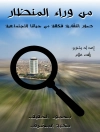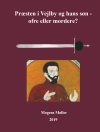In this ambitious new book, Henrietta Moore draws on anthropology,
feminism and psychoanalysis to develop an original and provocative
theory of gender and of how we become sexed beings. Arguing that
the Oedipus complex is no longer the fulcrum of debate between
anthropology and psychoanalysis, she demonstrates how recent
theorizing on subjectivity, agency and culture has opened up new
possibilities for rethinking the relationship between gender,
sexuality and symbolism.
Using detailed ethnographic material from Africa and Melanesia
to explore the strengths and weaknesses of a range of theories in
anthropology, feminism and psychoanalysis, Moore advocates an
ethics of engagement based on a detailed understanding of the
differences and similarities in the ways in which local communities
and western scholars have imaginatively deployed the power of
sexual difference. She demonstrates the importance of ethnographic
listening, of focused attention to people’s imaginations, and
of how this illuminates different facets of complex theoretical
issues and human conundrums.
Written not just for professional scholars and for students but
for anyone with a serious interest in how gender and sexuality are
conceptualized and experienced, this book is the most powerful and
persuasive assessment to date of what anthropology has to
contribute to these debates now and in the future.
قائمة المحتويات
Acknowledgements viii
1 Body, Mind and World 1
2 A Genealogy of the Anthropological Subject 23
3 Culture, Power and Desire 43
4 Objects and Relations with (M)others 63
5 The Problem of the Phallus 95
6 Being and Having 115
7 Kinship and Sexuality 137
8 Mothers and Men 165
9 Social Transformations 193
Notes 212
References 235
Index 259
عن المؤلف
Henrietta L Moore Professor of Social Anthropology, London School of Economics and Political Science












